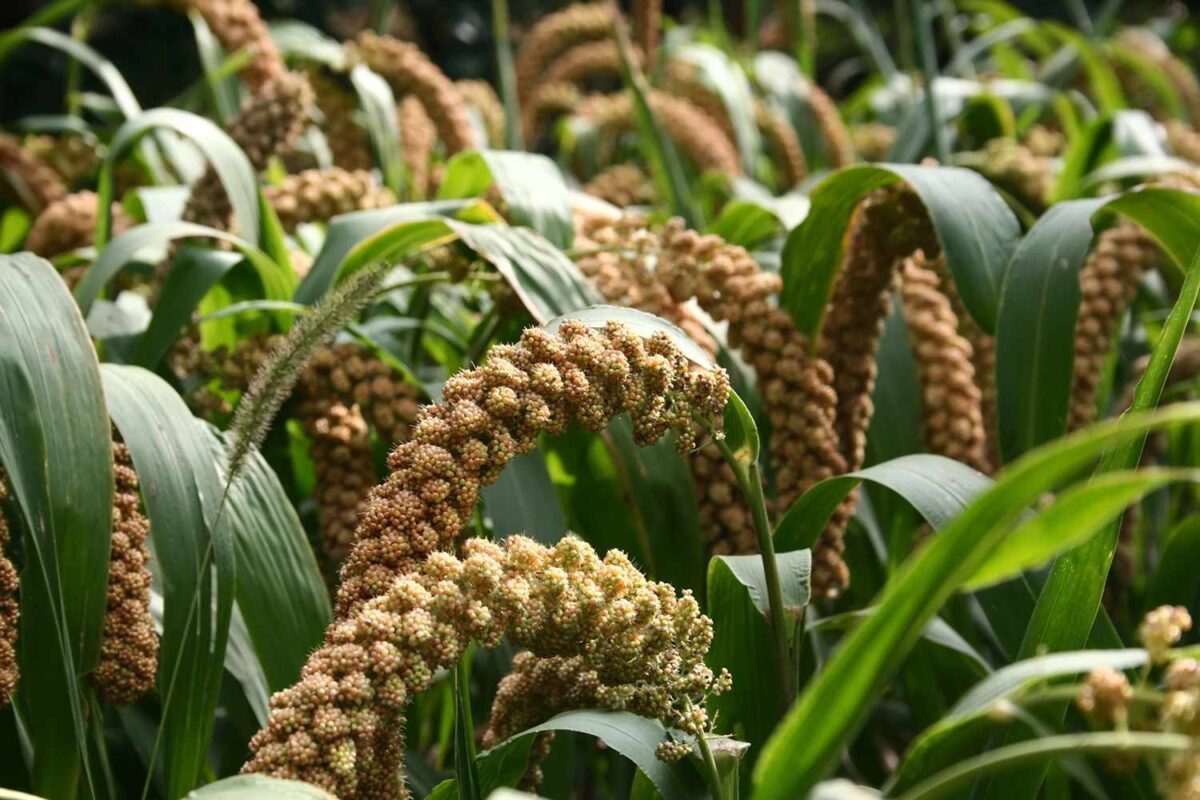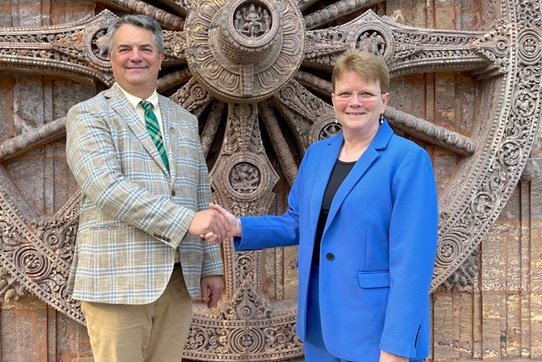Smart Foods for Smarter Policies: Millets in India’s Public Distribution System
As India intensifies efforts to fight hunger and malnutrition, the Tata-Cornell Institute (TCI) and ICRISAT are helping policymakers with evidence-based strategies to include millet in the Public Distribution System (PDS) which provides food subsidies to low-income families
Known as “Smart Foods,” millets are globally celebrated for being nutrient-rich and climate-resilient.
Alongside staples like rice and wheat, they provide important benefits for food security and nutrition, yet their inclusion in the PDS remains largely underutilized. To advance solutions, a TCI forum on ‘Promoting Millets in the PDS’ was hosted at ICRISAT’s Hyderabad campus, bringing together key participants from across the country.
The event featured an opening address by Dr Prabhu Pingali, ICRISAT Board Chair and Director of the Tata-Cornell Institute. Professor Prabhu Pingali said that novel insights were leading to reforms, helping to pave the way for a more effective and future-ready Public Distribution System in India. “With the potential of cash-based vouchers, families can gain the freedom to choose the nutritious foods they need, such as millet, rather than being limited to fixed staples, increasing demand for these nutritious grains and sending a strong price signal to millet producers to increase supply,” said Dr Pingali.
Through its project on the true cost of food subsidies in India, TCI has estimated the hidden costs associated with the PDS.
In a study published in Environmental Research Letters, researchers show that the true cost of the PDS in 2021-22 was $45.3 billion when the economic and environmental impacts of rice and wheat production were considered, compared with $16.5 billion budgeted by the federal government. They further demonstrated that replacing 1 kilogram of rice with millets for 200 million PDS beneficiaries would shrink the program’s true cost by $1.37 billion each year. Dr Stanford Blade, Director General-Interim, ICRISAT, emphasized the need to build on the momentum created by the International Year of Millets-2023 and ICRISAT’s Smart Food campaign. “This discussion is crucial for integrating millets into the Public Distribution System and avoiding the exclusivity that occurred with quinoa,’ said Dr. Blade.
Mr Manoj Kumar, CEO of the Naandi Foundation, moderated the session. Dr Raghav Puri, a Research Associate at the Tata-Cornell Institute, shared statistics on millet production and consumption in India, highlighting the potential to revive millet cultivation in traditional growing regions where it has declined. Ms Priya Rampal (Oxford Policy Management), Ms Bhagya Laxmi (WASSAN NGO), and Mr Dinesh Balam (Odisha Millet Mission) discussed challenges and opportunities in millet procurement and distribution in Karnataka, Telangana, and Odisha. Active participation by ICRISAT scientists provided valuable insights from the field.
As India intensifies efforts to fight hunger






